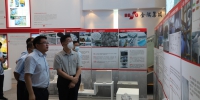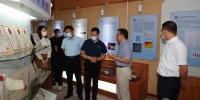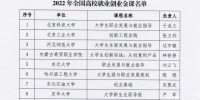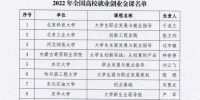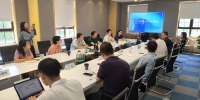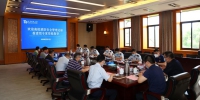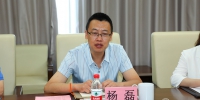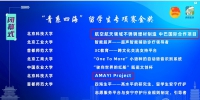坦桑尼亚总统基奎特演讲全文(图文)
潘彩清 摄影
Excellency Comrade JiangPeimin,Chairman of the China Agricultural University Council;
Hon. Comrade Ke Bingsheng, President of China Agricultural University;
Distinguished Council Members;
Distinguished Members of the Convocation;
Distinguished Students;
Invited Guests;
Ladies and Gentlemen;
Introduction
I thank you Comrade Chairman, Comrade President and Members of the China Agricultural University for having me here and for awarding me Honorary Professorship of this prestigious University. I must admit it was a big surprise when I got the news of the award. I never expected it but, I am very happy and grateful for the recognition and honor.
Ladies and Gentlemen;
I accept this award on behalf of the people of the United Republic of Tanzania .Through me , this great University has recognized their collective efforts to transform their country and their life from underdevelopment to prosperity. This award gives them a sense of satisfaction and optimism that their sweat and toil is being noticed and appreciated. More importantly, they are getting another important partner to buttress their efforts in addressing the challenges to transformation of their agriculture and livelihood.
Ladies and Gentlemen;
As it is customary at such occasions, the awardee is expected to say something in accepting the award. I have chosen to speak about agriculture, a subject of special interest to this University, to the faculty and to students. Specifically, I have decided to share my views on the essence and essentials for transforming agriculture in Africa and Tanzania, in particular.
The Importance of Agriculture
Mr. Chairman
Ladies and Gentlemen;
Let me hasten to say that one cannot talk of development in Africa without talking about agriculture. For many Africa countries, agriculture is the lifeline of their economies. The livelihood of two out of every three Africans depends on agriculture. Besides being the source of food, agriculture is he leading foreign exchange earner and source of raw materials and employment.
In Tanzania, for example, agriculture contributes about 25 percent of GDP; 34 percent of foreign exchange earnings and provides 95 percent of food requirements in the country. Agriculture employs 75 percent of labor force, and is an important source of raw materials for the manufacturing sector.
Given the important role that agriculture plays, particularly that of providing livelihood to majority of people of Africa, no serious discourse about transformation of Africa or poverty reduction can be complete without talking agriculture .We look to China for good examples and inspiration in agricultural transformation. It is an open secret that China is a success story in increasing economic growth and substantially reducing poverty, with transformation of agriculture being an important factor. China succeeded to increase agricultural productivity and overall output under the Green Revolution. The successes with agriculture have had a multiplier effect in other sectors of the economy, particularly with industrial development.
Problems Facing Agriculture in Africa
Ladies and Gentlemen;
Despite its central role, African agriculture is underdeveloped and characterized by low productivity and low production. For example, maize production in Africa averages 1.8 tons per hectare while that of China is 5.7 tons per hectare. Low productivity is a result of limited application of modern science and technology in crop production and animal husbandry.
This is exemplified by low mechanization and the hand hoe being the dominant farming implement. As a result farm sizes are small and so is volume of production. The situation is compounded by little use of irrigation and insufficient use of high yielding seeds, fertilizers and other farm inputs. Extension service is inadequate and so are financial services. Rural infrastructure is poor and crop marketing is plagued with a lot of inadequencies. Invariably, the buyer and prices for farmer’s produce are not certain.
Africa agriculture, therefore, needs radical transformation to turn it from backwardness to modernity, from low productivity to high productivity and from subsistence to being commercial. In other words, Africa needs a Green Revolution.
China’s experience has taught us there is no substitute to the Green Revolution in tackling the problems and challenges constraining the development and advancement of agriculture. I know it is not easy and quite expensive but, there is no better option than this. It confirms the historical development path of human society that no country has leaped forward without transforming its agriculture.
Boosting Agriculture Production: Transforming Small Scale Farmers
Ladies and Gentlemen;
In pursuit of the desire to transform our agriculture, we in Tanzania designed the Agriculture Sector Development Programme. This is a comprehensive programme designed to tackle the main constraints that impede growth and development of agriculture in our dear country.
Under the ASDP, deliberate efforts are being made to reduce the predominance of rain-fed agriculture and increase irrigation in agriculture. Currently, the proportion of irrigated agriculture in Africa is very minimal. At 5 percent, Africa has the lowest irrigated agriculture on the planet. Asia is 37 percent and Latin America is at 14 percent of their cultivated area. Tanzania, has 29 million hectares of arable land that can be irrigated of which only 450,000hectares are being utilized for that purpose.
Indeed, a lot of importance has been given to irrigation. About 60 percent of the financial resources for implementation of the Agriculture Sector Development Programme is for irrigation. The biggest problem has always been the inability of our government to collect all the revenues both from local and donor sources. Because of that not all budgeted money is being disbursed, hence complicating the implementation processes and causing low performance in irrigation.
It is one of the cardinal objectives of the Agricultural Development Programme to reduce the dominance of and the use of rudimentary farm implements like hand hoe. The aim is to adopt modern technology mechanize our agriculture. Currently, 70percent of farmers are using the hand hoe, 20 percent are using oxen ploughs and only 10 percent are using tractors. As a result farm sizes are small and, coupled with little use of irrigation, high yielding seeds and fertilizers, productivity and production is low.
To address this problem mechanization of our agriculture is one of the main objectives of the ASDP. In this regard, the Local Government Authorities and the National Service have been importing tractors and selling them to farmers on credit. We have, also, taken action to remove import duty for most agricultural implements and equipment to encourage the private sector to deal in these important tools. This has turned out to be a good incentive to both the public and private sectors. This has enabled tripling of the importation and use of tractors in the country, from 5,308 tractors in 2005/06 to 14,668 in 2012/13.
Ladies and Gentlemen;
For the last seven years we have employed more than 4,295 extension workers. They are important cadres to educate farmers on application of new farming methods and techniques as well as on the use of modern inputs and implements. The Government has been working with other stakeholders and on its own to invest in improving agriculture related infrastructure such as big irrigation canals, rural roads, electricity, telecommunications and water supply.
Ladies and Gentlemen;
We have increased the budget to subsidize inputs for small holder farmers’ from TShs. 8.5 billion (5 million USD) in 2005/06 to TShs. 157.8 billion (92.8million USD) in 2013/14. Close to one million farmers are benefiting with fertilizers, seeds and pesticides provided under this programme. This way our farmers have been able to increase fertilizer usage from 8.5kg per hectare in 2005 to 14 kg per hectare in 2013. The average for Africa is 8 kg per hectare. We want our farmers to use at least 50 kg per hectare as per the target of the Abuja Declaration on Fertilizer for the African Green Revolution. As you know very well even that amount would still be too low by world standards.
Lack of reliable sources and avenues of agricultural financing remains one of the major constrains and a setback to transformation of agriculture in Tanzania and Africa as a whole. Farmers cannot access credit to enable them buy farm implements, inputs and machinery. If we cannot overcome this challenge the Green Revolution will take a long time to happen in Africa. Our experience has taught us that agriculture needs special if not peculiar financing mechanism.
Commercial banks have shown indifference in lending to farmers. They also find it difficult to lend money to buyers of farmer’s crops. That is why we in Tanzania deem it necessary to introduce input subsidy facility as an interim measure. For the long term we have decided to establish the Tanzania Agricultural Development Bank, which will exclusively finance agricultural activities. We have been talking to major financial houses in China to explore the possibility of assisting us in this endeavor.
Modernizing Agriculture
Ladies and Gentlemen;
The implementation of the ASDP and two other initiatives: the Kilimo Kwanza and SAGCOT which compliment it, has very much improved matters in agriculture.
With Kilimo Kwanza (Agriculture First) initiative we took deliberate measure to involve the private sector in the agriculture value chain. With SAGCOT we also involved both local and international private sector in collaboration with small holder farmers to develop the agricultural potentials of the Southern Agricultural Growth Corridor. There is also the participation of the development partners and civil society. It is worth noting that these initiatives have had positive results. Agriculture productivity and output has had positive results. Agriculture productivity and output has been increasing substantially. In 2012/13 food self-sufficiency in the country was at 118 percent and in 2013/14 it is close to 130 percent. Interestingly, we are now facing the challenges related to our successes. There is the problem of market for farmers’ produce and that of inadequate storage facilities.
Indeed, the assumption that the invisible hand called “market” will solve these problems has not worked very well for us. The private sector buyers have not been able to buy all farmers produce at favorable prices. As a result the prices offered are low and not the whole crop is bought. This sad state of affairs demoralizes farmers and keeps them and us under pressure about how to overcome these new challenges. We are now looking for new and innovative ways of addressing crop marketing problems. This compels us to expedite and hasten the process of establishing a Commodity Market Exchange. We are also working on building more warehouse facilities for storing crop. It is important to do so in order to help farmers overcome the problem of post harvest losses.
Research and Development
Ladies and Gentlemen;
Agricultural research is an important factor in the transformation of agriculture. Unfortunately, this is a matter we have not been doing well. In this regard, we have been taking measures to correct past inadequacies and improve the matters. The deliberate action I took to provide funding for research has been a game change of its own kind. It has enabled our scientists to do research work. The funds have enabled our research institutions to buy new equipment as well as repair and upgrade existing equipment. Many scientists are getting the money to do Masters and PhD studies. I know USD 30 million is not enough but I have set a target of allocating one percent of the national budget to research purposes. We have not been able to meet this objective yet but we are on course to get there. However, as alluded to earlier even at the current levels of funding noticeable progress has been made. The unfreezing of employment has also been useful to our research institutions and future research work. The employment of young scientists is giving new hope and life to agriculture research in Tanzania. With more money being spent on seed multiplication, by government and the private sector researchers are getting motivated even more.
Comrade Chairman;
Let me at this juncture, applaud China University of Agriculture for its determination to support agricultural research in Tanzania through scholarship and research. I understand that you have offered to the Ministry of Education and Vocational Training seven scholarships beginning next academic year. I sincerely thank you for this generous support. The partnership you have entered with the Sokoine University of Agriculture will surely enable researchers from our two institutions of higher learning to work together for our mutual benefits. Your plan to establish demonstration centers in villages around Morogolo will go a long way towards helping the dissemination of your research findings to farmers. This is exactly what we need. This is why universities are there for. I want to assure you that my government is very supportive of this initiative.
Support from China
Ladies and Gentlemen;
We are building a new Agricultural University in Butiama, the birth place of Mwalimu Julius Nyerere to compliment the work done by the Sokoine University of Agriculture. We are looking for partners in this important endeavor. We will highly appreciate your readiness to support and work with us to the full realization of this noble dream.
Let me conclude by once again thanking you for the honor you have given me and for the support you are giving to our country in our historic mission and duty to transform Tanzania’s agriculture.
I thank you for your attention!
责任编辑:陈卫国 刘铮